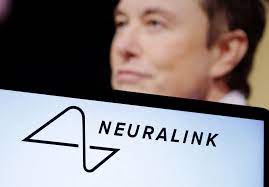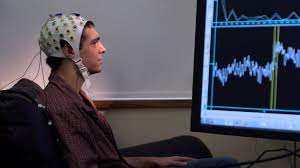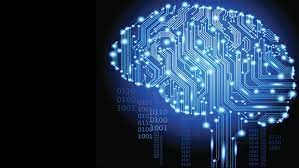
In a monumental breakthrough, Elon Musk’s brain-implant startup, Neuralink, has received approval from the FDA to initiate its first-ever human clinical study. Neuralink’s pioneering device aims to revolutionize how people interact with technology. This technology allows them to control computer interfaces using their brains. The technology has the potential to restore vision and empower individuals with severe disabilities to communicate and move. Thus, this FDA approval of human clinical study marks a significant milestone in merging neuroscience and technology for the betterment of humanity.
Also Read: AI Accurately Converts Brain Signals Into Video
Opening New Horizons: Brain-Computer Interfaces for the Future

Neuralink’s visionary project seeks to unlock the immense potential of brain-computer interfaces, where individuals can seamlessly control technology using their thoughts. By decoding brain activity, Neuralink’s devices promise to restore vital functions, such as vision, and empower those with disabilities to communicate and move.
Also Read: AI Model That Can Translate Brain Activity into Text
Surgical Robots and Proprietary Electrodes: The Future of Neuralink
Neuralink plans to establish specialized clinics where surgical robots will expertly implant the company’s cutting-edge devices into patients’ brains. These surgical robots will skillfully thread Neuralink’s proprietary electrodes, brain-signal recording wires, into the brain. This combination of advanced technology promises to pave the way for groundbreaking advancements in neuroscience.
Also Read: Elon Musk’s Urgent Warning, Demands Pause on AI Research
An Important Milestone: FDA Approves Human Clinical Study

Excitement reverberates through Neuralink as the FDA grants approval for the company’s first-in-human clinical study. In a tweet, Neuralink expressed gratitude for the collaborative effort between their team and the FDA, emphasizing their technology’s profound potential to transform countless lives. This significant achievement marks the beginning of a remarkable journey toward helping numerous individuals through the power of Neuralink’s technology.
On the Path to Human Testing: Trials and Recruitment
While Neuralink has yet to open recruitment for its clinical trial, the company assures the public that more information will be forthcoming. Elon Musk had announced plans to seek FDA approval for human testing as early as 2020, demonstrating Neuralink’s dedication to advancing their groundbreaking technology.
From Primates to Pong: Unveiling the Power of Neuralink

Neuralink’s implant technology has undergone extensive testing on primates, yielding astonishing results. A video released by the company showcased a monkey implanted with Neuralink devices playing the classic video game Pong using only its brain. Musk also revealed a “telepathic typing” demonstration where a monkey controlled a cursor through brain signals. These breakthroughs underscore the immense potential of Neuralink’s technology to enhance human-computer interactions.
Also Read: How AI Is Revolutionizing Game Testing in 2023
A Gateway to Possibilities: Enabling People with Disabilities
The awe-inspiring video demonstrated how a macaque named Pager utilized Neuralink’s neural links, equipped with over 2,000 implanted electrodes, to control a game of Pong. This technology can potentially revolutionize the lives of individuals with disabilities. Also, providing a means to interact with technology through brain activity. From communication to adapting to daily life, Neuralink offers new avenues of independence and empowerment.
Safety and Efficacy: The Journey Ahead

Before a brain-computer interface can be made available to patients, rigorous clinical testing is crucial to ensuring the safety and long-term effectiveness of Neuralink’s devices. Experts in the field of neurotechnology emphasize the necessity of comprehensive testing. The testing is necessary to pave the way for a future where brain-computer interfaces can be implemented successfully.
Also Read: How Good Are Human Trained AI Models for Training Humans?
Addressing Concerns: Overheating and Device-Associated Infections
Elon Musk has acknowledged concerns raised by the FDA, including potential issues of device overheating and the possibility of toxic chemicals seeping into the brain from the implants. Neuralink has taken these concerns seriously and has made significant strides in developing new surgical protocols to address device-associated infections. By proactively tackling these challenges, Neuralink remains committed to ensuring the safety and efficacy of its groundbreaking technology.
Our Say
The FDA approves a human clinical study for Neuralink, representing a watershed moment in the intersection of neuroscience and technology. Elon Musk’s visionary project promises to revolutionize how we interact with computers. Moreover, it offers hope to individuals with disabilities and pushes the boundaries of human potential and the field of neuroscience. As the company moves forward, this groundbreaking technology has the potential to reshape lives and usher in a new era of human-computer integration.
Learn More: Machine Learning & AI for Healthcare in 2023




